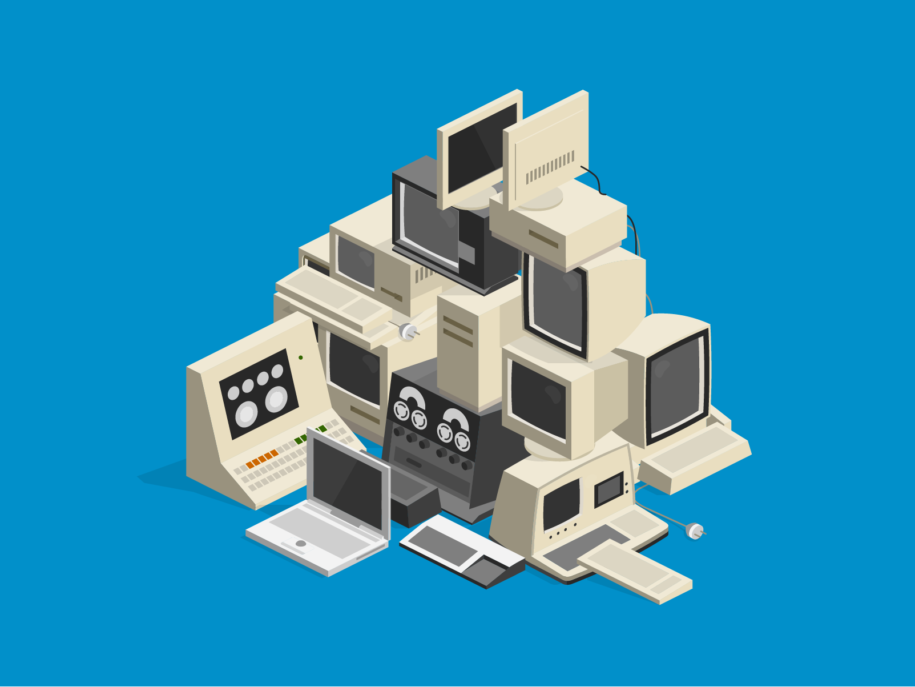The Risk of Legacy Systems
How to mitigate the risk and reduce costs
Don McIntyre, Digital Consultant at CyberLab, discusses how unpatched legacy systems can be the biggest cybersecurity risk for organisations. He covers:
- The Cost of Legacy Systems
- Mitigating the Risk
Legacy systems refer to older computer systems, software, or applications that are still in use but are no longer updated or supported by the manufacturer or vendor.
Multiple vendors have announced end of support and end of life on products in recent years, including Microsoft, Umbraco and more.
The Cost of Legacy Systems
Legacy systems might seem harmless, but the cost to an organisation can be high. They can cost more in upkeep and support because of the specialised knowledge and skills required to maintain, and finding experienced professionals who are familiar with outdated technologies can be challenging and costly. Additionally, legacy systems may require expensive customisations or modifications to keep them running and may be more prone to downtime and errors, which can negatively impact productivity and revenue.
It’s more than just the financial cost of upkeeping these systems, it’s the serious security risk they pose too. Legacy systems pose a significant cyber security risk to organisations because they are often no longer supported by updates and patches, which leaves organisations vulnerable to vulnerabilities. Having legacy systems in place is like leaving your door unlocked – it’s easier for the criminals to get in. Cyber criminals can exploit these vulnerabilities to gain unauthorised access to sensitive data, networks, and systems.
Mitigating the Risk
To mitigate the risks of legacy systems and reduce costs through correct migrations, organisations should first identify which systems are at end-of-life or end-of-support and prioritise them for replacement or upgrade.
The next step is to assess the potential impact of migration on their business processes, data, and users. From this, an organisation can plan and develop their migration away from these legacy systems. The resulting strategy should prioritise addressing the systems that pose most risk to the organisation.
Moving to the Cloud
Whether it is making better sense of your data, improving how you collaborate with your customers, rationalising your operations or differentiating yourself from your competitors, developing the right software has never been more important to business success. Cloud-based solutions typically offer lower costs whilst also offering scalability and better security.
Adoption and Change Management
Our environments are changing daily, meaning that the understanding and implementation of enhanced, improved technology is the best way to succeed. Moving away from legacy systems means embracing new technology. However, without the proper adoption of these technologies by all our people, an organisation might not be making the most of their investment. Adoption and change management is the process of supporting individuals and teams to embrace and integrate change. Effective adoption and transformation management can reduce resistance to change and minimises disruption to the organisation’s operations during transition.
On-going support and management
Even after the migration process is complete, it is important to not fall back into old habits. Organisations should ensure that the new systems are properly maintained and updated to avoid the same problems that plagued the legacy systems. This may involve regular software updates, system backups, and ongoing training and support.
In Conclusion
The potential benefits of migrating away from legacy systems include increased productivity, improved efficiency, enhanced security, and greater agility and innovation. Upgrading to newer technologies can also provide opportunities for process improvements and automation, allowing organisations to streamline their operations and reduce costs over the long term.
How CyberLab Can Help
We provide a range of professional services to compliment the skills you have and provide the skills you don’t. CyberLab can provide consultancy and support on your key technology projects, help deliver business solutions, support your users in adopting them and provide managed or reactive support when your solution is up and running.
Detect. Protect. Support.
Posture Assessment
Understand your security risks and how to fix them.
Take the first step to improving your cyber security posture, looking at ten key areas you and your organisation should focus on, backed by NCSC guidance.
Claim your free 30-minute guided posture assessment with a CyberLab expert.

How to Protect Against Phishing Attacks


Leave a Reply
You must be logged in to post a comment.